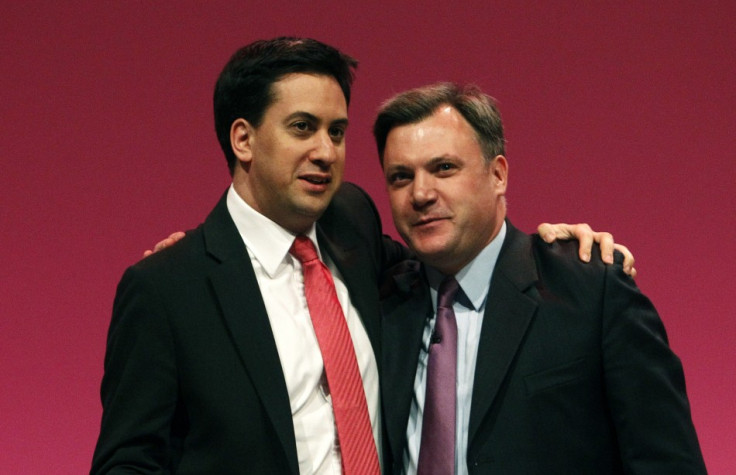UK Economy: Does Ed Balls Have a Credible Alternative?

The UK economy has flat lined and with the threat of massive trade union strikes on 30 November both the public and economists are seriously considering whether David Cameron and Chancellor George Osborne have got their plan right. Has the UK moved down a road they can't come back from or is it in fact that Ed Balls' and the Labour Party plans simply are not credible?
Wednesday unemployment rose 80,000 to 2.51 million and the government has come under serious attack from Ed Balls and Ed Miliband over the rate of deficit reduction plans. Tony Travers from the London School of Economics revealed on the BBC Newsnight programme that one of the biggest falls in employment has happened in London and the South East where much of the successful private sector opportunities exist.
The Labour Party spent Wednesday attacking the government's plans but did they come out with any substance themselves? Ed Miliband attacked the government at Prime Minsters questions claiming that the government has "got it wrong" and the private sector is not picking up the slack from public sector job losses. What Ed Miliband says is in line with Tony Travers, with the Labour leader saying that every two jobs being lost in the in public sector, less than one is being created in the private. However, the Labour Party has not talked about how they will create new jobs in these sectors; simply opposing trade union strikes will not appease a nation that wants to hear a credible plan.
Ed Balls has stressed that a way of breathing life into the economy is to put more money into the economy. Mr Balls has said that the government must bring down the rate of VAT which will get people spending in the economy once again. However, the government's plans will not allow for such a drop in VAT.
Mr Balls has said that cutting the tax for the highest earners, which "raises billions of pounds", should not be "the first priority".
"Do you really think, when we need to get the economy moving, do you really think the first priority is not to cut VAT for families or find other ways to help families on middle incomes but to only cut to taxes for people on incomes over £150,000?" asked Balls.
If the government is going to continue on its plan and not look for a 'plan b' there can't be a reduction in VAT for their plans to work. The VAT increase is a crucial aspect of George Osborne's deficit reduction plan as it stands today. The plan relies on increased tax revenues to the tune of £149.5 billion per year by 2014/15. A reduction in the VAT rate now would therefore risk undermining the credibility of the plan, which has been credited with calming the fears of markets and international bodies.
Simply the UK will have to accept that the country is not going to see huge economic growth in the next twelve months. However, steps must be taken to curb unemployment; something the chancellor seems incapable of doing. On Labour's side there are more serious issues at hand. Does Ed Balls have a plan, if he does, is it credible? Is Ed Miliband the right man to take the country from a flat lining economy into a growth economy? What is clear is that the government will last but only because of the divisions and lack of a serious alternative from the Labour Party.
© Copyright IBTimes 2024. All rights reserved.





